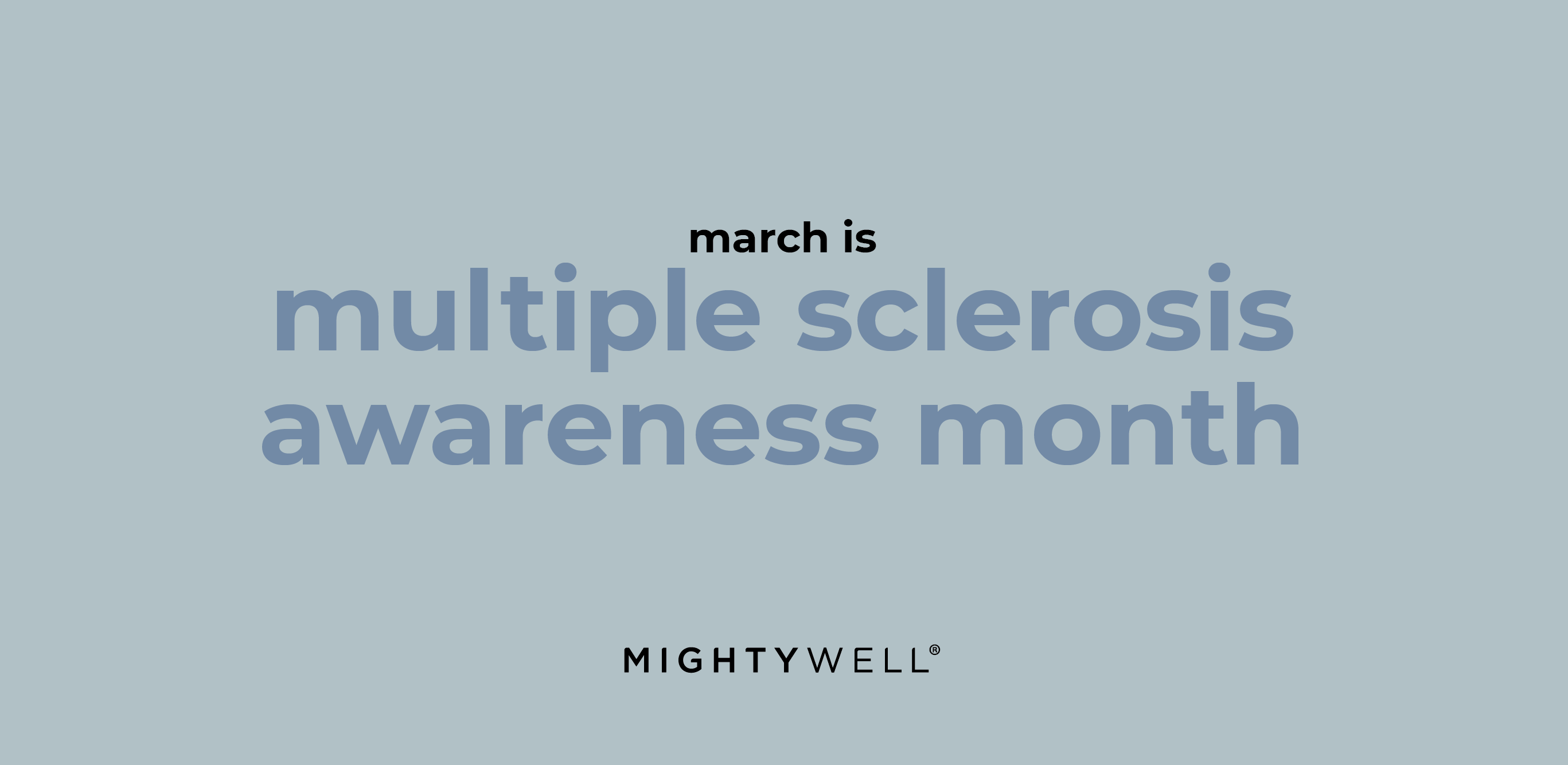March is Multiple Sclerosis Awareness Month – intending to raise awareness of this unpredictable and currently incurable central nervous system disease. To raise awareness, we’ve compiled five facts you should know about MS and how to bring awareness.
#1: Nearly 1 million Americans will be diagnosed with MS.
The National MS Society funded a prevalence study to understand the scope of people living with MS and to help get a better understanding of their needs. Once completed, the National MS Society realized the actual number of people diagnosed with MS was more than double the estimate – 913,925, to be exact. Read more about the study and the steps moving forward here.
#2: No two Multiple Sclerosis diagnoses are the same.
Since Multiple Sclerosis is a nervous system disease, nerves are affected by MS in various ways and show different symptoms in everyone. This is one of the reasons why MS is difficult to diagnose and treat.
#3: Three most common types of MS
According to yalemedicine.org, the three most common types of multiple sclerosis are:
- Primary Progressive Multiple Sclerosis (PPMS): This type of MS accounts for the smallest number of cases; usually, a person is 40 or older when diagnosed. People diagnosed with Primary progressive MS usually do not have disease “attacks” but instead lose functionality gradually, becoming increasingly less able. Both men and women are equally likely to be diagnosed with this type of MS.
- Relapse Remitting Multiple Sclerosis (RRMS): This is the most common type of MS, where people diagnosed may experience symptoms occasionally but then improve on their own or with some treatment. This type of MS is more common in women.
- Secondary Progressive Multiple Sclerosis (SPMS): This is the most challenging type of MS for doctors to treat. It usually develops in a person previously diagnosed with Relapse Remitting MS after 10 to 20 years of having the disease. Symptoms of this type of MS will continue to worsen, and the person’s mobility will gradually diminish.
Cleveland Clinic also has a great resource from a medical perspective to learn more about MS.
#4: Common symptoms
Some of the more common symptoms of MS are:
- numbness or tingling in the extremities
- vision problems
- Vertigo and/or dizziness
- “MS hug”: a tightness or squeezing sensation around the torso
- Fatigue
- Difficulty walking
- Loss in cognitive function (as Jenna Green puts it, “cog fog”)
While many of these symptoms can come up in many different chronic illnesses, it’s always essential to ask your doctor if you are experiencing any new signs.
#5: Uncommon symptoms
Some of the more uncommon symptoms that come up with MS are:
- Difficulties speaking
- Difficulties swallowing
- Seizures
- Hearing loss
- Loss of taste
For a more in-depth look at the symptoms of Multiple Sclerosis, check out the National MS Society. In honor of Multiple Sclerosis Awareness Month, we want to highlight Destiny’s story after being diagnosed with MS here.

